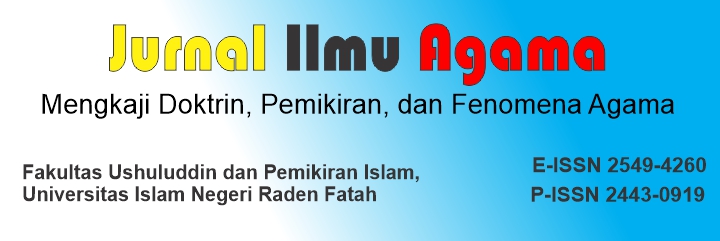SOSIO-KULTURAL TAFSIR AL-QUR’AN MELAYU NUSANTARA : KAJIAN ATAS TAFSIR AL-AZHAR KARYA HAMKA
Main Article Content
Abstract
This article aims to show the importance of the socio-cultural approach in interpreting the Qur'an. Here, an exegete seeks to produce interpretive products through a thorough understanding of the texts of the Qur'an, then explains the intended meanings and seeks to relate the texts of the Qur'an with social reality and culture context in society. Hamka's Tafsir al-Azhar was chosen because the interpretation of al-Azhar was a popular interpretation in the third period in the development of interpretations in Indonesia. Al-Azhar's interpretation which is patterned with al-adabiy al-ijtima'iy approach, explains the social problems of society. The problems studied are women's leadership issues, inheritance and hijab. Hamka's interpretation of women's leadership is that men become leaders of women because men have the obligation to pay dowry to women. and also to treat his wife well. All of this shows that men are indeed leaders of women. The leadership comes from men instinct, while women have an instinct to be led. However, it is possible for women to become leaders if women have advantages over men. Men get twice the share of women in the distribution of inheritance because men's responsibility is heavier than women in property. Hamka does not view this inheritance difference from the physical aspects of women, but rather looks at the responsibilities given to men. The obligation of women to cover their genitals is to protect the honor of women and avoid mistreatment from other parties. Efforts to form a community of believers and morality are not only aimed at women, but also assigned to men.
Article Details
How to Cite
Halimatussa'diyah, Halimatussa'diyah, and Apriyanti Apriyanti. “SOSIO-KULTURAL TAFSIR AL-QUR’AN MELAYU NUSANTARA : KAJIAN ATAS TAFSIR AL-AZHAR KARYA HAMKA”. Jurnal Ilmu Agama: Mengkaji Doktrin, Pemikiran, dan Fenomena Agama 19, no. 2 (December 30, 2018): 222–234. Accessed May 9, 2025. https://jurnal.radenfatah.ac.id/index.php/JIA/article/view/2916.
Section
Artikel
Authors who publish with this journal agree to the following terms:
- Authors retain copyright and grant the journal right of first publication with the work simultaneously licensed under a Creative Commons Attribution 4.0 International License that allows others to share the work with an acknowledgement of the work's authorship and initial publication in this journal.
- Authors are able to enter into separate, additional contractual arrangements for the non-exclusive distribution of the journal's published version of the work (e.g., post it to an institutional repository or publish it in a book), with an acknowledgement of its initial publication in this journal.
- Authors are permitted and encouraged to post their work online (e.g., in institutional repositories or on their website) prior to and during the submission process, as it can lead to productive exchanges, as well as earlier and greater citation of published work.
How to Cite
Halimatussa'diyah, Halimatussa'diyah, and Apriyanti Apriyanti. “SOSIO-KULTURAL TAFSIR AL-QUR’AN MELAYU NUSANTARA : KAJIAN ATAS TAFSIR AL-AZHAR KARYA HAMKA”. Jurnal Ilmu Agama: Mengkaji Doktrin, Pemikiran, dan Fenomena Agama 19, no. 2 (December 30, 2018): 222–234. Accessed May 9, 2025. https://jurnal.radenfatah.ac.id/index.php/JIA/article/view/2916.

